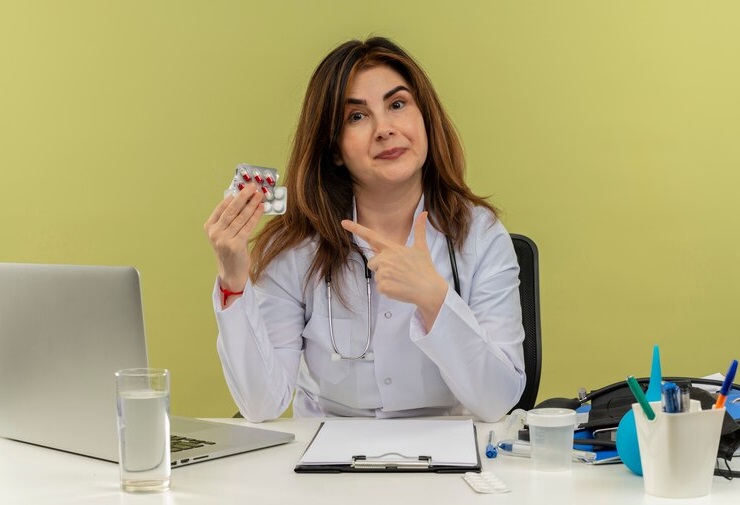
When we think about how our bodies work, it’s like imagining a huge, complex machine where every part has a specific job, and one of the most crucial parts is the liver, which tirelessly works to breaks down fat and keep everything running smoothly. The liver acts like a big, bustling factory inside us, ensuring that our bodies have the energy they need while keeping everything in balance.
The Role of the Liver
The liver is like the command center for metabolism. It performs over 500 different functions, which is kind of amazing when you think about it. One of its main roles is to process nutrients from the food we eat and turn them into substances the body can use. This is where the liver breaks down fat into energy and other essential compounds.
To understand how important the liver is, imagine it as a control tower at an airport. Just like the control tower manages planes, the liver manages fats, proteins, and carbohydrates, making sure they go where they are needed. It breaks down fat into useful energy, helps with digestion, stores vitamins and minerals, and even detoxifies harmful substances.
How the Liver Breaks Down Fat
The process of how the liver breaks down fat is essential for keeping our bodies running efficiently. Understanding this process can help us appreciate how our lifestyle choices impact our health.
Understanding Fat Metabolism
Fat metabolism is a complex process, but it’s essential for our overall health. The liver breaks down fat through a series of biochemical reactions. First, fats are broken down into fatty acids and glycerol. This process is called lipolysis. These smaller molecules can then be used for energy or further processed by the liver to be stored or sent to other parts of the body.
The liver plays a pivotal role in fat metabolism by converting excess fats into energy or storing them for later use. This balance is crucial because, without it, our bodies wouldn’t be able to efficiently manage the intake and expenditure of energy, leading to various health issues.
Lipolysis: The First Step
Lipolysis is the first step in the journey of how the liver breaks down fat. During lipolysis, enzymes in the liver break down triglycerides, which are the main type of fat found in our bodies, into free fatty acids and glycerol. This is a crucial step because it makes the fats available for use as energy. This initial breakdown is vital for ensuring that our body can access the stored energy whenever it is needed, especially during periods of fasting or intense physical activity.
Beta-Oxidation: The Next Phase
Once the liver has broken down the fats into fatty acids and glycerol, the next phase is beta-oxidation. This is where the liver breaks down fat even further. In beta-oxidation, the fatty acids are transported into the mitochondria, which are the powerhouses of our cells.
Here, the fatty acids are broken down into acetyl-CoA, which enters the citric acid cycle to produce ATP, the energy currency of the cell. This step is critical because it transforms the breakdown products into a usable form of energy that powers everything from muscle contractions to brain function.
Ketogenesis: An Alternative Pathway
Sometimes, especially during fasting or low-carbohydrate diets, the liver takes a different route to breaks down fat. This alternative pathway is called ketogenesis. When glucose is scarce, the liver converts fatty acids into ketone bodies, which can be used as an alternative energy source by many tissues, including the brain.
This process ensures that our bodies continue to function even when carbohydrate intake is low. Ketogenesis is particularly important in situations where the body needs to adapt to a lack of dietary carbohydrates, providing a steady supply of energy in the form of ketone bodies.
Factors Affecting Fat Metabolism
Several factors can influence how efficiently the liver breaks down fat. Understanding these factors can help us make better lifestyle choices to support our liver health and overall well-being.
Diet and Nutrition
What we eat significantly impacts how efficiently the liver breaks down fat. A diet high in healthy fats, such as those found in avocados, nuts, and olive oil, can support liver function and fat metabolism. On the other hand, excessive consumption of unhealthy fats and sugars can overwhelm the liver, leading to fatty liver disease and other metabolic issues.
Eating a balanced diet rich in fruits, vegetables, lean proteins, and whole grains helps maintain optimal liver function. Avoiding processed foods and excess sugars reduces the risk of overloading the liver, allowing it to efficiently breaks down fat.
Physical Activity
Exercise plays a crucial role in how the liver breaks down fat. Physical activity increases the demand for energy, prompting the liver to mobilize stored fats and convert them into usable energy. Regular exercise helps maintain a healthy balance of fat metabolism and prevents the accumulation of excess fat in the liver.
Engaging in at least 30 minutes of moderate exercise most days of the week can significantly improve fat metabolism. Activities like walking, cycling, swimming, or even dancing are excellent ways to keep your liver functioning efficiently and help it breaks down fat.
Hormonal Balance
Hormones like insulin, glucagon, and cortisol regulate how the liver breaks down fat. Insulin, for example, inhibits lipolysis, while glucagon promotes it. An imbalance in these hormones can disrupt fat metabolism, leading to conditions such as insulin resistance and metabolic syndrome.
Maintaining hormonal balance through a healthy diet, regular exercise, and stress management is crucial for optimal liver function. Hormonal imbalances can impair the liver’s ability to breaks down fat, contributing to various metabolic disorders.
Common Disorders of Fat Metabolism
Several disorders can affect the liver’s ability to breaks down fat, leading to health complications. Understanding these conditions can help in early diagnosis and effective management.
Non-Alcoholic Fatty Liver Disease (NAFLD)
NAFLD is a condition where excess fat builds up in the liver, affecting its ability to breaks down fat efficiently. This can lead to inflammation and liver damage over time. Risk factors for NAFLD include obesity, insulin resistance, and a sedentary lifestyle. Managing these risk factors through diet and exercise is crucial for preventing and treating NAFLD.
Insulin Resistance
Insulin resistance is a condition where the body’s cells become less responsive to insulin, a hormone that regulates blood sugar levels. When insulin resistance occurs, the liver’s ability to breaks down fat is impaired. This can lead to an accumulation of fat in the liver and other tissues, contributing to metabolic disorders like type 2 diabetes and cardiovascular disease.
Metabolic Syndrome
Metabolic syndrome is a cluster of conditions, including high blood pressure, high blood sugar, excess body fat around the waist, and abnormal cholesterol levels. These conditions occur together, increasing the risk of heart disease, stroke, and type 2 diabetes. A key aspect of metabolic syndrome is impaired fat metabolism, where the liver struggles to breaks down fat effectively.
Supporting Liver Health
Supporting the liver is crucial for maintaining its ability to breaks down fat and perform other vital functions. Here are some ways to keep your liver healthy.
Healthy Eating Habits
Adopting healthy eating habits is one of the best ways to support your liver’s ability to breaks down fat. Focus on a balanced diet rich in fruits, vegetables, whole grains, lean proteins, and healthy fats. Avoid excessive consumption of sugary and processed foods, as these can overload the liver and impair its function.
Regular Exercise
Incorporating regular physical activity into your routine can help enhance your liver’s ability to breaks down fat. Aim for at least 30 minutes of moderate-intensity exercise most days of the week. This can include activities like walking, swimming, cycling, or even dancing.
Hydration
Staying hydrated is essential for overall health and supports the liver’s ability to breaks down fat. Water helps flush toxins from the body and keeps the liver functioning optimally. Aim to drink at least eight glasses of water a day, and more if you’re physically active or live in a hot climate.
Limiting Alcohol Consumption
Excessive alcohol consumption can severely damage the liver and impair its ability to breaks down fat. If you choose to drink alcohol, do so in moderation. For men, this means up to two drinks per day, and for women, up to one drink per day.
Avoiding Toxins
Exposure to environmental toxins, such as chemicals and pollutants, can strain the liver and affect its ability to breaks down fat. Minimize your exposure to these toxins by using natural cleaning products, avoiding cigarette smoke, and choosing organic foods when possible.
Stress Management
Chronic stress can impact hormonal balance and affect how the liver breaks down fat. Incorporating stress management techniques, such as meditation, yoga, deep breathing exercises, and mindfulness, can help support overall liver health and improve fat metabolism.
Foods That Support Fat Metabolism
Certain foods can support the liver’s ability to breaks down fat and improve overall fat metabolism.
Leafy Greens
Leafy greens like spinach, kale, and Swiss chard are rich in antioxidants and fiber, which support liver health and fat metabolism. These greens help the liver breaks down fat more efficiently and reduce inflammation.
Fatty Fish
Fatty fish like salmon, mackerel, and sardines are high in omega-3 fatty acids, which are beneficial for liver health. Omega-3s help reduce inflammation and improve the liver’s ability to breaks down fat.
Nuts and Seeds
Nuts and seeds, such as almonds, walnuts, and flaxseeds, are excellent sources of healthy fats, protein, and fiber. These nutrients support the liver’s function and enhance its ability to breaks down fat.
Avocado
Avocados are rich in monounsaturated fats and antioxidants, which are beneficial for liver health. They help the liver breaks down fat and reduce inflammation.
Green Tea
Green tea is packed with antioxidants called catechins, which support liver function and fat metabolism. Drinking green tea regularly can enhance the liver’s ability to breaks down fat.
Olive Oil
Olive oil is a healthy fat that can improve liver function and help the liver breaks down fat. It contains antioxidants that reduce inflammation and promote overall health.
The Importance of Sleep
Quality sleep is crucial for overall health and plays a significant role in how the liver breaks down fat. During sleep, the body undergoes repair and regeneration processes, including the liver. Poor sleep can disrupt hormonal balance and impair fat metabolism, leading to weight gain and liver issues.
Tips for Better Sleep
- Establish a regular sleep schedule by going to bed and waking up at the same time every day.
- Create a relaxing bedtime routine to signal your body that it’s time to wind down.
- Avoid caffeine and heavy meals close to bedtime.
- Make your sleep environment comfortable, cool, and free from distractions.
- Limit screen time before bed to reduce exposure to blue light, which can interfere with sleep.
The Future of Fat Metabolism Research
Advances in Understanding
Ongoing research continues to uncover new insights into how the liver breaks down fat. Scientists are exploring the genetic and molecular mechanisms that regulate fat metabolism, which could lead to new treatments for metabolic disorders.
Potential Treatments
Emerging therapies targeting specific pathways involved in fat metabolism hold promise for treating conditions like NAFLD and metabolic syndrome. These treatments could enhance the liver’s ability to breaks down fat and improve overall metabolic health.
Lifestyle Interventions
Lifestyle interventions, such as diet and exercise programs, remain the cornerstone of managing and improving fat metabolism. Personalized approaches based on individual genetic and metabolic profiles could optimize these interventions and support the liver’s ability to breaks down fat.
Conclusion
Understanding how the liver breaks down fat is essential for maintaining overall health and preventing metabolic disorders. By adopting healthy eating habits, engaging in regular physical activity, staying hydrated, and managing stress, you can support your liver’s function and enhance its ability to breaks down fat. Ongoing research and advances in treatment options hold promise for improving fat metabolism and supporting liver health in the future.
Taking care of your liver is crucial for your overall well-being. Remember, the liver breaks down fat and performs many other vital functions that keep your body running smoothly. By making simple lifestyle changes and being mindful of your diet and activity levels, you can ensure that your liver stays healthy and continues to do its important work efficiently. So, cherish your liver and give it the care it deserves.





